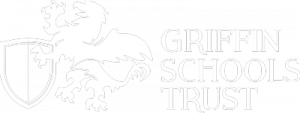>> MATHS
Intent
At Bramford Primary School, high-quality teaching and learning are at the very heart of our mission. This is because high-quality teaching and learning transforms lives, opens doors and provides opportunities. Mathematics is essential to everyday life, critical to science, technology and engineering, and necessary for financial literacy and most forms of employment. A high-quality mathematics education, therefore, provides a foundation for understanding the world, the ability to reason mathematically, an appreciation of the beauty and power of mathematics, and a sense of enjoyment and curiosity about the subject.
Our aim is to cultivate lively, curious minds, encouraging pupils to become committed, confident and capable in order to solve problems that will become a fundamental part of their future.
We aim for all pupils to:
- Become fluent in the fundamentals of mathematics, so that they develop conceptual understanding and the ability to recall and apply knowledge rapidly and accurately. Including the varied and regular practice of increasingly complex problems over time.
- Reason mathematically by following a line of enquiry and develop and present a justification, argument or proof using mathematical language.
- Can solve problems by applying their mathematics to a variety of problems with increasing sophistication, including breaking down problems into a series of simpler steps and persevering in seeking solutions – including unfamiliar contexts and real-life scenarios.
We ensure that mathematics presents frequent opportunities for children to explore, reason and solve a range of problems that question and underpin their mathematical thinking in a range of different ways.
To do this we:
- Develop a positive attitude towards mathematics and an awareness of the fascination of mathematics.
- Encourage and support students to enjoy mathematics and develop tolerance and persistence when solving problems.
- Inspire students to become confident in using mathematics to explore and solve problems both in school and in real-life situations.
- Develop abstract, logical and critical thinking and the ability to reflect critically upon their work and the work of others.
Implementation
At Bramford we follow the ‘The National Curriculum programs of study for Mathematics 2014’ and, The EYFS Framework – Number and Numerical Patterns. We also incorporate the 2020 non-statutory ‘Ready to Progress’ guidance.
As a school, we utilise the White Rose Maths scheme of learning as a guide for small steps in learning to support teaching. We ensure only high-quality resources are used to support learning and we supplement this scheme using other resources selected from the NCETM resources, Ready to Progress Documents. The calculation guidance is used within school to ensure a consistent approach to teaching the four operations over time.
At the start of each new topic, key vocabulary is introduced and revisited regularly to develop language acquisition, embedding as the topic progresses and is highly visible on Maths Working Walls so the children can use them regularly and correctly when using verbal or written explanations in their work.
Children are taught mathematical concepts through clear modelling and have the opportunity to expand their knowledge and understanding of them. Our method includes the use of concrete objects, pictures, words, and numbers to assist children in exploring and demonstrating mathematical concepts, enriching their learning experience, and deepening understanding at all levels.
Concrete – children can use concrete objects and manipulatives to better understand and explain what they are doing.
Pictorial – Using visual representations, students can then expand on this concrete approach to reasoning and problem-solving.
Abstract – With the foundations in place, children can confidently transition to an abstract approach using numbers and key concepts.
Reasoning and problem-solving are essential components of the activities designed to help children develop their mathematical thinking.
There are resources readily available to assist in demonstrating a conceptual understanding of the various skills appropriate for each year group.
During investigations, children are encouraged to explore, apply, and evaluate their mathematical approach in order to develop a deeper understanding when solving various problems/puzzles.
A love of math is fostered throughout the school through connections with other subjects, allowing students to apply an ever-expanding range of skills with increasing independence.
EYFS:
It is widely appreciated that a child’s mathematical understanding is greatly influenced during their early years of life. During these early years, children are given opportunities to develop and improve their skills in counting, understanding and using numbers, calculating simple addition and subtraction problems; and describing shapes, spaces, and measures.
Children in EYFS explore mathematical concepts through active exploration and their everyday play-based learning. EYFS practitioners provide opportunities for children to manipulate a variety of objects which supports their understanding of quantity and number. Mathematics in the early years provides children with a solid foundation that will enable them to develop skills as they progress through their schooling and ensures children are ready for the National Curriculum.
Impact
As students at Bramford Primary School gain fluency, mathematical reasoning, and competency in handling increasingly complex, contextual situations, we want them to be confident in drawing rich connections between various mathematical concepts. We want our students to be able to understand the world, be able to think logically, and have a sense of excitement and curiosity about the subject as they advance in their education.
Through first quality teaching, guidance and effective feedback, children will:
- Explain their reasoning and justify their thought processes clearly.
- Recall facts and procedures quickly.
- Be able to transition easily between various mathematical contexts and representations.
- Possess the capacity to see links and relationships in mathematics.
- Have a lifelong passion for learning and be enthusiastic, self-assured, fluent, and independent learners.
- Be prepared for the next stage of their mathematics education when they leave our school at the end of KS2.

